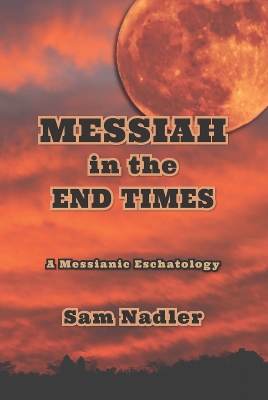The “Three Days and Three Nights” Issue
In Matthew 12:40, we read the words of Yeshua, “For as Jonah was three days and three nights in the belly of the great fish, so will the Son of Man be three days and three nights in the heart of the earth.”
The question is often raised: In light of Matthew 12:40, must not Yeshua have been in the grave a full three days and nights (that is, exactly seventy-two hours) for the Scripture to be correct? Since traditionally Messiah’s death took place on a Friday and His resurrection had taken place by early the following Sunday morning, there appears to be a contradiction in Matthew 12:40.
In traditional Jewish thought, a part of the day is equal to the whole. Note these portions of Talmud that speak on the issue:
- -Moed Katan 9b: “Abba Saul maintains the view that any part of the day may be deemed as an entire day… the halachah follows the opinion of Abba Saul and the Sages concur with Abba Saul.”
- -Nazir 5b: “He considers part of a day equivalent to a whole day.”
- -Nidah 33a: “seeing that we have an established rule that part of a day is regarded as the whole of it.”
Thus according to Jewish tradition, “three days and three nights” means no more than “three days,” or the combination of any part of three separate days.
This is how the phrase is used in the Tanakh as well:
- -“So he put them all together in prison for three days. Now Joseph said to them on the third day, “Do this and live, for I fear God.” (Genesis 42:17-18)
- -“It came about at the end of three days after they had made a covenant with them, that they heard that they were neighbors and that they were living within their land. Then the sons of Israel set out and came to their cities on the third day.” (Joshua 9:16-17)
- -“Go, assemble all the Jews who are found in Susa, and fast for me; do not eat or drink for three days, night or day” … “Now it came about on the third day that Esther put on her royal robes and stood in the inner court of the king’s palace in front of the king’s rooms.” (Esther 4:16; 5:1)
- -“Then it happened when David and his men came to Ziklag on the third day… “They gave him a piece of fig cake and two clusters of raisins, and he ate; then his spirit revived. for he had not eaten bread or drunk water for three days and three nights. David said to him, ‘Where do you belong? And where are you from?’ And he said, ‘I am a young man of Egypt, a servant of an Amalekite; and my master left me behind when I fell sick three days ago.’” (I Samuel 30:1, 12-13)
But you do not need to go to the Talmud or the Tenak for this point to be resolved. New Covenant Scripture itself answers the question. If, as asserted, Messiah was in the grave three days and three nights, or a full seventy-two hours, than Messiah would properly have been said to have been raised at the start of the fourth day. But the New Covenant Scriptures consistently state otherwise:
- -“From that time Yeshua began to show His disciples that He must go to Jerusalem, and suffer many things from the elders and chief priests and scribes, and be killed, and be raised up on the third day.” (Matthew 16:21)
- -“And they will kill Him, and He will be raised on the third day.” (Matthew 17:23)
- -“And will hand Him over to the Gentiles to mock and scourge and crucify Him, and on the third day He will be raised up.” (Matthew 20:19)
- -“The Son of Man must suffer many things and be rejected by the elders and chief priests and scribes, and be killed and be raised up on the third day.” (Luke 9:22)
- -“But we were hoping that it was He who was going to redeem Israel. Indeed, besides all this, it is the third day since these things happened.” (Luke 24:21)
- -“God raised Him up on the third day and granted that He become visible.” (Acts 10:40)
- -“and that He was buried, and that He was raised on the third day according to the Scriptures.” (I Cor. 15:4)
Please note the phrase, “on the third day.” It was “on the third day,” not “on the fourth day.” Therefore, the resurrection had to occur somewhere within a 72-hour period in order to be said to occur “on the third day.”
The idea that Matthew 12:40 teaches a full and complete three days and three nights (or 72-hour period) is what is called “wooden literalism.” However, the text needs to be understood as a Hebraism, or Hebrew colloquialism, meaning three days as understood throughout the Tenakh, as shown above. These Hebraisms are not to be seen as contradictions, but as a colloquial form of speech. Colloquial speech is commonly accepted in English as well. We say “sunrise” when we know that the sun is not rising, but that the earth is merely turning in its rotation toward the sun. No harm, no foul.
Wooden literalism would require interpreting the phrase as meaning that the earth would have to stop, and the sun rotate, so as to “rise” in the morning.
I do hold to a literal form of interpretation of the Scriptures. But literal interpretation means “literally interpreting the Scripture in its normal usage.” This means that if the Scripture uses a metaphor, your interpret it as a metaphor. An example of this is seen in Psalm 91:4, ” He will cover you with His pinions, and under His wings you may seek refuge; His faithfulness is a shield and bulwark.”
Though the writer uses “pinions” and “wings,” he does not mean that the Lord is a heavenly chicken, but that He will protect His people as a chick is protected under the wings of the hen. Similarly, three days and nights is a Hebraism for three days, and therefore means Messiah arose “on the third day.” It could have been a Friday crucifixion and a Sunday morning, or even a Saturday night, resurrection, and still fit into the “three days.”
What is important is that Messiah was raised bodily from the dead as He said (in Luke 9:22, etc. above), and is therefore the true atonement for our sins and the Lord of all, even “the first fruits from the dead.” (I Cor. 15:20)




Add Comment